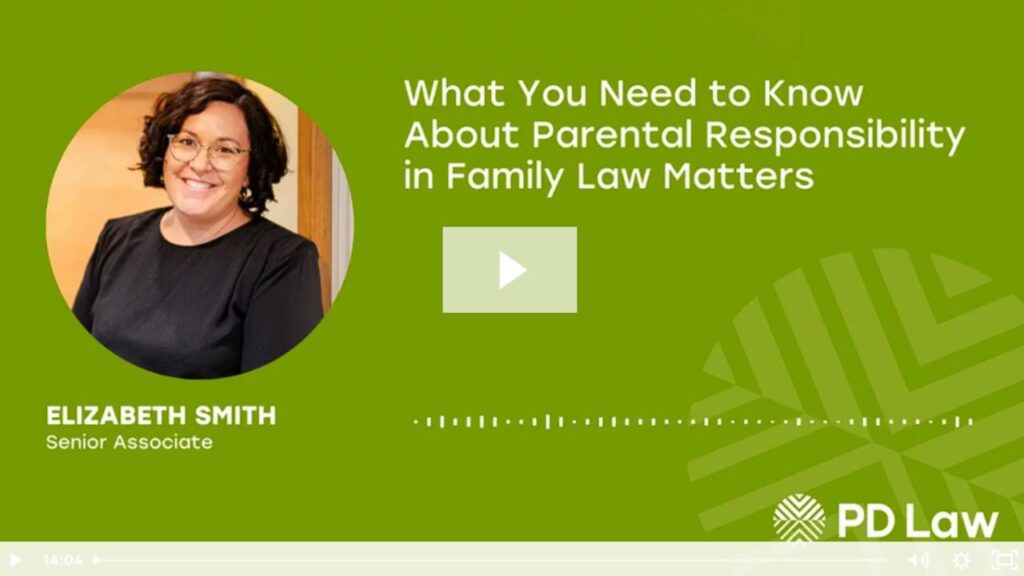What to Know About Financial Agreements
A financial agreement is a binding contract between two parties (generally a couple), who have agreed in advance on how they would split their assets in the event of a relationship breakdown.
These agreements are helpful during a separation as they help to reduce the financial stress of a separation and allow the couple to separate & move on without the need for costly court action.
When Can You Enter into a Financial Agreement?
Marriage
You may enter into a financial agreement with your partner before the marriage, during the marriage or after the marriage (depending on which relates to your circumstances, a different part of the Act is applicable to your agreement.)
De facto Relationship
You may enter into a financial agreement with your partner before the defacto relationship, during the defacto relationship or after the defacto relationship (depending on which relates to your circumstances, a different part of the Act is applicable to your agreement.)
What does a Financial Agreement Generally Cover?
Financial agreements cover a multitude of a couples personal & financial affairs, including but not limited to:
- Individual incomes.
- Current assets & assets considered as shared.
- How many & what future assets will be managed.
- Who will obtain custody of the family pets.
- How will future children affect the agreement.
- Spousal maintenance.
- In case of a de facto relationship – how will marriage affect the agreement.
What Are the Benefits of Having a Financial Agreement?
There are many benefits of entering into a financial agreement, these benefits include:
- It provides certainty and peace of mind that your assets/inheritance etc. acquired during the relationship are protected in case of separation.
- Avoids costly litigation process over assets acquired in the relationship in the event of a separation.
- It’s binding on a person’s estate in the event of a person’s death.
Reasons Why a Financial Agreement Can Be Overturned?
The Agreement Was Obtained by Fraud
A false representation has been made knowingly, without belief in its truth; or recklessly or carelessly as to whether it be true or false. The fraud may relate to matters within the financial agreement itself.
The Agreement Is Void, Voidable or Unenforceable
A financial agreement may be void due to mistakes, uncertainty, or incompleteness.
Circumstances Have Arisen Since the Financial Agreement Was Signed That Has Made It Impracticable for The Agreement or Part of The Agreement to Be Carried Out
After a financial agreement is signed, if an intervening event occurs, even if not caused by the fault or conduct of either party, or the terms of a financial agreement cannot be performed, then a Court might order that a financial agreement be set aside.
Since The Making of The Financial Agreement, A Material Change In Circumstances Has Occurred
As result of the change, a party will suffer hardship if the Court does not set the Agreement aside.
A Party to The Agreement Engaged in Conduct That Constituted Duress, Undue Influence Or Unconscionable Conduct
Duress may be found to have occurred where the use of illegitimate pressure by one party has induced the other to enter into the Agreement. The effect of duress is to inhibit the will of the weaker party, i.e., it impacts on their capacity to give consent.
Undue influence may be found to have occurred where there is the use of influence by one party over another for the benefit of the dominant party or a third party.
Unconscionable conduct may be found to have occurred where one party is under a special disability that renders them unequal to the other party, and that disability is so evident to the stronger party, it is unconscionable for the Agreement to be made.
Special disability can include an array of different factors. To prove unconscionable conduct, it’s necessary to consider the conduct of the stronger party in dealing with a person under a special disability, in circumstances where it would be inequitable that the conduct would be allowed to affect the outcome of the bargaining process.
Inadequate Legal Advice
The independent legal advice requirement causes significant issues as it requires you to try to predict whether independent legal advice will be proper & sufficient as such that the Agreement is not open to being set aside on the account of the other sides solicitor’s negligence.
The Concept of Fairness and Reasonableness
While there is no specific requirement of fairness or reasonableness in the Act, case law identifies that unless an agreement is fair and reasonable it will be vulnerable to challenge.
In essence, one-sided agreements may look good on paper but are difficult to uphold in Court when challenged. Further, generally there is nothing to lose for an applicant in challenging such financial agreements.
If you require assistance with a financial agreement, contact our family team today.
















